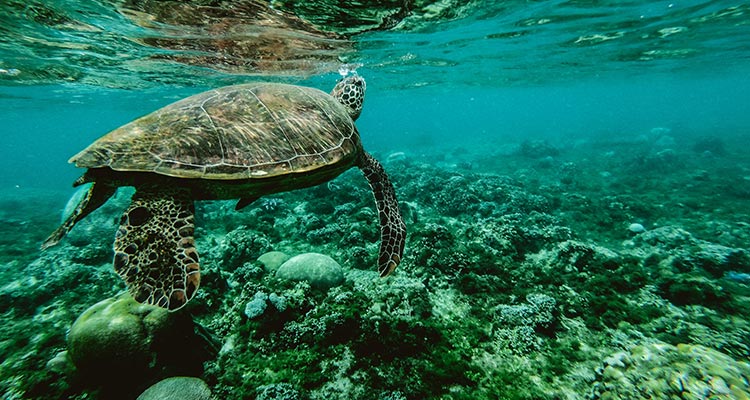
World Oceans Day – Exploring the Depths: Protecting Our Oceans Through Sustainable Travel
World Oceans Day, celebrated annually on June 8th, is a global event dedicated to honoring and protecting our oceans. It serves as a reminder of the vital role oceans play in sustaining life on Earth and highlights the need for collective action to preserve these precious ecosystems. World Oceans Day brings together individuals, communities, organizations, and governments worldwide to raise awareness about the challenges facing our oceans and to promote sustainable practices. It serves as a platform for education, advocacy, and engagement, encouraging people to take steps to protect and conserve our oceans for future generations.
Our planet’s vast oceans are teeming with life and provide us with invaluable resources, breathtaking beauty, and a sense of awe. However, our actions as travelers can have a significant impact on these fragile ecosystems. It is crucial that we embrace sustainable travel practices to ensure the long-term preservation of our oceans. In this article, we will delve into the ways we can protect the oceans while still enjoying the wonders they have to offer.
- Choose Responsible Accommodations: When planning your oceanic adventure, opt for accommodations that prioritize sustainability. Look for eco-lodges or hotels with green certifications that implement measures to conserve water, reduce energy consumption, and minimize waste. Consider supporting establishments that actively participate in beach cleanups or contribute to marine conservation projects.
- Offset Your Carbon Footprint: Air travel is often unavoidable when exploring coastal destinations. While it contributes to carbon emissions, you can offset your footprint by investing in carbon offset programs or supporting initiatives that fund renewable energy projects. Additionally, try to select direct flights and pack light to reduce the overall environmental impact of your journey.
- Practice Responsible Marine Wildlife Interactions: The allure of swimming alongside marine creatures is undeniable, but it’s crucial to approach these interactions responsibly. Choose reputable tour operators that adhere to guidelines for responsible wildlife encounters. Avoid activities that involve touching or disturbing marine life, and never purchase souvenirs made from endangered species or coral reefs.
- Respect Marine Protected Areas: Marine protected areas (MPAs) serve as crucial sanctuaries for marine biodiversity. Respect the rules and regulations established within these areas, such as no-fishing zones or restrictions on certain activities. By doing so, you contribute to the preservation and restoration of these sensitive habitats.
- Say No to Single-Use Plastics: Plastic pollution poses a severe threat to marine life. Make a conscious effort to reduce your plastic consumption while traveling. Carry a reusable water bottle, bring your own cloth bags for shopping, and opt for eco-friendly toiletries and sunscreen that are free from harmful chemicals like oxybenzone that harm coral reefs.
- Participate in Ocean Conservation Initiatives: Make your travel experience more meaningful by actively engaging in ocean conservation initiatives. Join local beach cleanups, volunteer for marine research projects, or donate to organizations dedicated to protecting the oceans. By actively participating, you contribute to the ongoing efforts to safeguard these precious ecosystems.
- Educate Yourself and Others: Knowledge is a powerful tool for change. Educate yourself about marine conservation issues, such as overfishing, coral bleaching, and plastic pollution. Share your knowledge with fellow travelers and inspire them to adopt sustainable practices. Social media can be a powerful platform to raise awareness and encourage positive change.
Traveling sustainably is not only about minimizing our impact on the oceans but also about actively working towards their protection and restoration. By choosing responsible accommodations, offsetting our carbon footprint, respecting marine wildlife, supporting marine protected areas, reducing plastic consumption, participating in conservation initiatives, and educating ourselves and others, we can become advocates for ocean conservation. Let us embrace the privilege of exploring the depths while ensuring that future generations can revel in the wonders of our oceans.